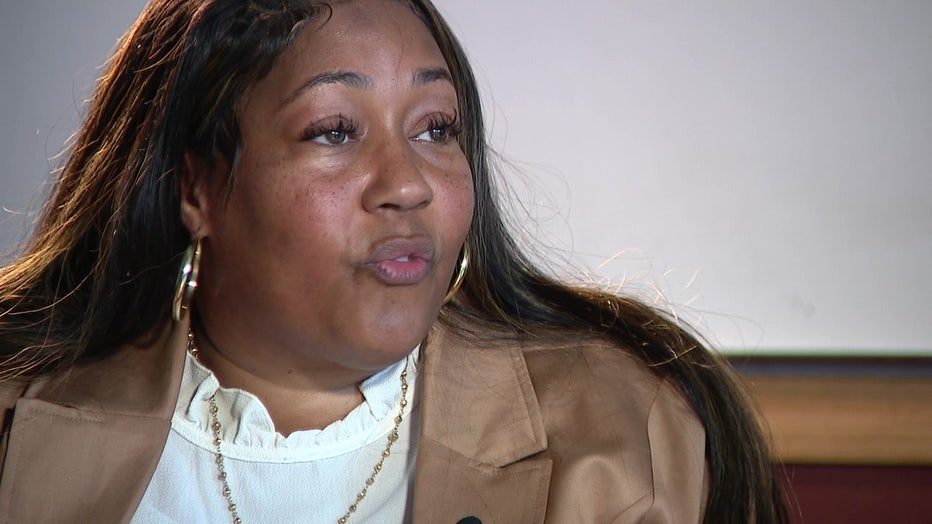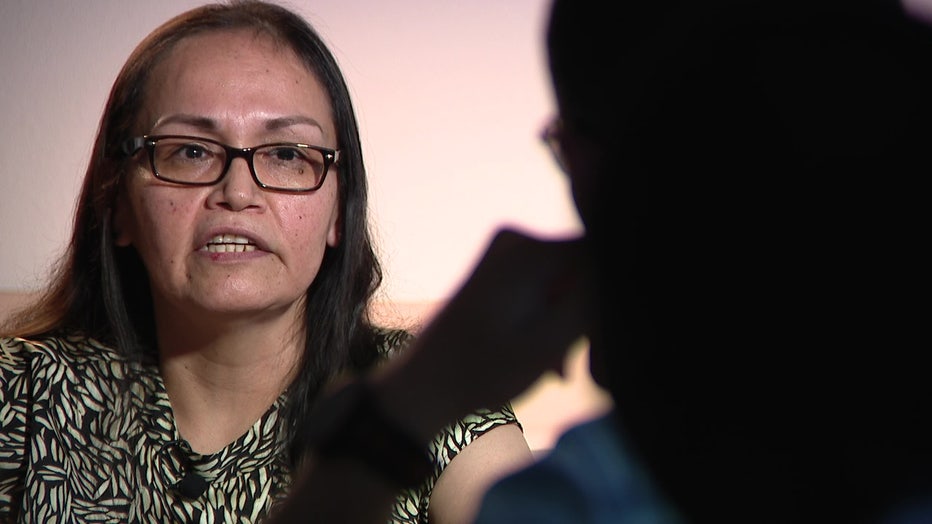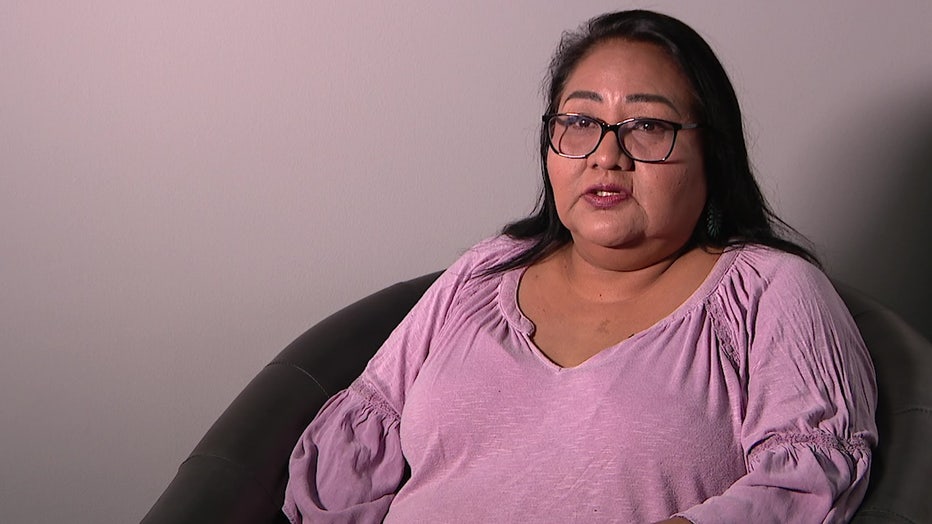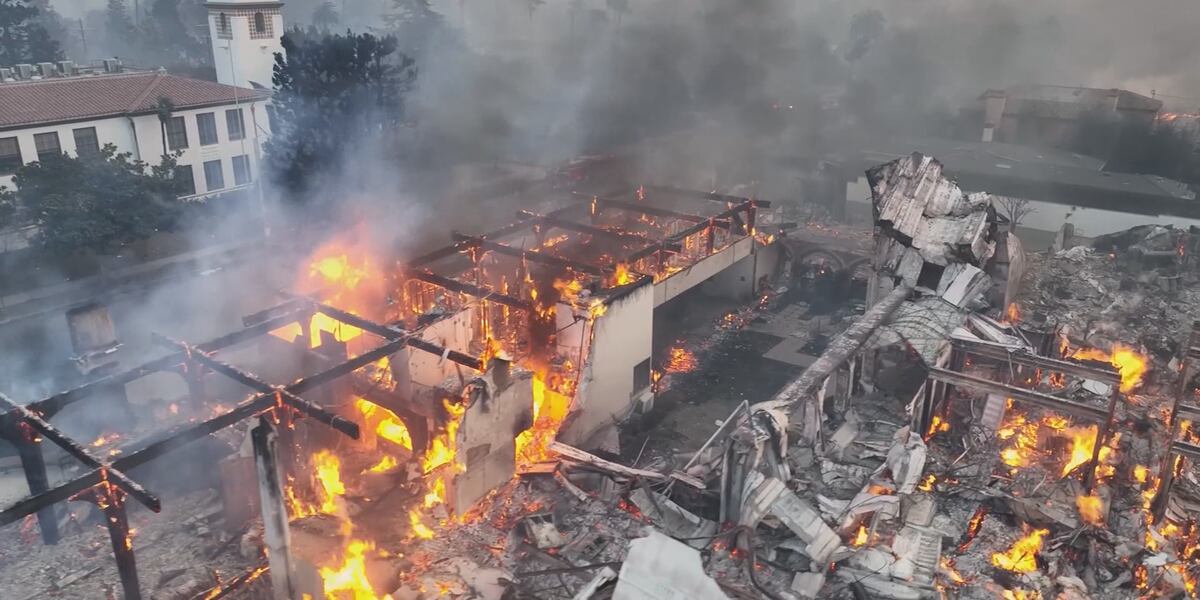Arizona
Suspended provider says ‘chaos’ will ensue for displaced Native Americans amid Arizona Medicaid scandal

PHOENIX – Tribal leaders across Arizona are calling for an “all hands on deck” approach as Indigenous people battling addiction get trafficked from home to home.
It’s all part of a fraudulent Medicaid scheme.
With the state announcing it’s suspended more than a hundred providers recently, we’re digging into the potential fallout of displaced Native Americans.
One of those registered providers temporarily suspended by the Arizona Health Care Cost Containment System, known as AHCCCS, tells FOX 10 the notice they got seemed “generic and vague.”
Now, tribal members impacted are saying they don’t know where to go for the Medicaid services they need.
The impact of Arizona’s Medicaid fraud crackdown
‘Not just an Arizona native issue’
Inside Memorial Hall at Steele Indian School Park, the spotlight shines on tribal leaders. All eyes are on the search for a solution to an issue not only ripping off taxpayers but taking lives in the process.
“This is not just an Arizona native issue. We have our relatives, Navajo people even, who are being trafficked from New Mexico, Utah, and relatives from other nations as far away as Wyoming and Montana. This is a national phenomenon,” said Ethel Branch, Navajo Nation Attorney General, during a town hall on May 24.
Ethel Branch, Navajo Nation Attorney General
Regardless of the state or reservation, Native Americans are being brought to the Phoenix metro area and are offered services to get sober. However, the FBI is investigating how being trafficked for treatment, ends up a lie while fake rehab centers to get paid through AHCCCS Medicaid funds.
The state is cracking down, suspending payments from AHCCCS to nearly 150 registered providers.
‘We follow the rules’
Dwightnette Mitchell says AHCCCS is only making an example of her clinic and others under suspension.
“I’m sorry, I’m a little emotional right now,” she said during the town hall. “No, we’re not going to the reservation picking up people off the street.”
She’s the co-owner of ICAN Health Care & Services, an intensive outpatient program based in Glendale.
She tells me ICAN opened last August, starting with ten clients and growing quickly to nearly a hundred.

Dwightnette Mitchell, co-owner of ICAN Health Care & Services
“We follow the rules. Because our first and only things we worry about is the clients being safe, and the treatment. Sobriety is the first option we have, their health, their kids’ safety,” Mitchell said.
Just weeks ago, Mitchell received a notice of suspension from AHCCCS, accusing ICAN of engaging in Medicaid fraud, billing for services that “could not have been provided as claimed,” billing for excessive hours per member, for services greater than 24 hours on a given date of service.
Mitchell denies allegations of fraudulent billing and now, ICAN must transition patients to other providers.
“We had to withdraw all of our clients and send them elsewhere. But when you ask them ‘Where should we send the clients? Because you have so many people that are suspended, we don’t have a place to actually send them,’” she said.
ICAN has never been cited for deficiencies, according to the Department of Health, and patients like Kimberly Liston are impacted by the suspension.

“As a Navajo, it’s intimidating to come out and be like, ‘Hey, I have a problem,’” she said.
Liston has been sober for three months and says there’s a lack of resources for addiction issues on the reservation.
“My mom actually passed away from alcoholism, and it’s not a good thing to talk about, but it makes me more aware of the generational trauma that I come from, so that’s why I’m here and I want to change,” Liston said.
The impact of suspensions, terminations
Unlicensed facilities are still popping up, and Mitchell says the effects will be felt as providers get sidelined.
“Not only will people become homeless, but then crime is going to increase. People’s children are going to end up in foster care. It’s going to cause chaos,” she said.
A spokesperson with AHCCCS says officials can’t comment further on the suspension of ICAN due to the ongoing investigation.
The provider can fight the suspension through a hearing with the state.
FOX 10 requested an interview Carmen Heredia, the new director of AHCCCS regarding Medicaid fraud in general, but was told she’s not doing interviews at this time.
A lack of resources on reservations?
Reva Stewart is an advocate for victims of fraudulent sober living and behavioral health homes.
“We have seen a lot more of our relatives go missing. A lot of families reaching out to us because they are missing,” Stewart said.
She works to help those who are displaced to get back home.
“If they’re dumped, they’re told to leave the facility, or they get into a van, get dropped off at the Phoenix Indian Medical Center,” she said.
She admits there are rooted issues on the reservation for natives fighting to stay sober.

“On the Navajo Nation, they have very limited behavioral health places, but with this issue of our relatives being missing, going off the reservation trying to find help, I see that they’re stepping it up. I see that they’re moving in the direction where we should have had behavioral health centers, or rehab centers more so, on the reservations,” Stewart said.
Is this an example of the lack of resources on tribal land?
“Absolutely. When you ask people from the Navajo tribe and Apache and different things like that – if you ask them – if they wanna go back, they’ll tell you no,” Mitchell said.
Operation Rainbow Bridge, a collaboration between Navajo Nation, the state of Arizona, Phoenix Indian Medical Center and Solari Crisis Human Services, launched to bring victims of fraudulent sober living homes back to safety.
Liston says it’s about time.
“Well, they need to be held accountable. They are not seeking the needs for the natives who are struggling,” she said.
If you know a victim in need of resources, the state has provided a hotline. Dial 2-1-1 and press 7.
If you believe there’s fraudulent activity regarding a sober living home in your neighborhood, send your tips to fox10investigates@fox.com.

Arizona
NFL moves Vikings-Rams playoff game to Arizona

As wildfires continue to rage in Los Angeles, the NFL has made the only decision it could.
Monday’s Wild Card playoff game between the Vikings and Rams has been moved to Arizona. The NFL announced the relocation of the game on Thursday night.
“The decision was made in consultation with public officials, the participating clubs and the NFLPA,” the league said in a statement.
The game still begins on Monday at 8:00 p.m. ET.
Tickets will go on sale at 10:00 a.m. PT on Friday through Seatgeek.com, for Rams season-ticket holders. At 12:00 p.m. PT, the tickets will be available to the general public.
The 10-7 Rams had earned home-field advantage by winning the NFC West. The 14-3 Vikings are the NFC’s No. 5 seed.
Arizona
Water, climate, justice: Environmental groups outline priorities for 2025 Legislature

Arizona Gov. Katie Hobbs talks about 2025 legislative session
Gov. Katie Hobbs talks about affordability, safety, Arizona’s water future and building relationships with new members of the state Legislature.
A coalition of environmental organizations has described what it wants to see from Arizona lawmakers this year.
During a news conference on Wednesday, the coalition of 35 organizations laid out its vision for Arizona’s 2025 legislative session. The group, coordinated by the Sierra Club, also released a written set of priorities.
Sandy Bahr, director of the Sierra Club’s Grand Canyon Chapter, said the organizations are already working on legislation to address most of the stated priorities. Many organizations in the coalition regularly advocate their policy preferences at the state capitol and work with legislators on new laws.
“We will collaborate with our elected leadership at every level to work towards having cleaner air and heat mitigation efforts to ensure a future where Arizonans don’t face extreme heat for longer periods of time in the years ahead,” said Vania Guevara, advocacy and political director at Chispa Arizona.
Organizations and some lawmakers bemoaned what they described as a pattern of inaction from Arizona’s historically Republican-dominated Legislature.
“I call on my Republican counterparts, as the majority in this Legislature, to hear the bills we introduce … and to pass them. Will this session in 2025 be a departure from prior activity?” said Arizona Senate Democrat and Minority Leader Priya Sundareshan of Tucson.
No Republican lawmakers spoke at the conference.
The coalition, which includes some faith-based and social issue groups as well as environmental organizations, called on the Legislature to address climate change, protect the state’s water resources, protect vulnerable populations, and add more environmental considerations to state and local government actions.
Arizona’s legislative session begins Monday. Republicans will have a 17-13 majority in the Senate and a 33-27 majority in the House, making both bodies redder than they were in 2024.
Climate, water, environmental justice are on the list
The coalition’s specific priorities include:
- Support Gov. Katie Hobbs’s Office of Resiliency. The coalition wants legislators to put more money toward the governor’s response to extreme heat and the office’s work to develop a climate action plan for the state. The groups would also like the removal of Arizona laws keeping the state from measuring or limiting greenhouse gas emissions.
- Electrify transportation. The coalition wants Arizona lawmakers to pass bills that promote investment in transportation electrification, including electric school and transit buses and more robust electric-vehicle charging infrastructure.
- Regulate rural groundwater: The coalition wants laws enabling the measurement and limitation of groundwater pumping throughout Arizona, including in rural areas where pumping has contributed to land subsidence and depleted stream flows. Bahr told The Arizona Republic in an email that the coalition is involved with a bill to accomplish this goal.
- Protect riparian ecosystems: The coalition wants amendments to Arizona laws to protect water in Arizona’s waterways specifically to support local ecosystems. Specifically, the groups want the Legislature to modify the state’s surface water quality program to include seasonal streams and washes. The group also wants lawmakers to appropriate more funding for the state to address a backlog of polluted water systems and put them on a path to meeting water quality standards. The coalition is working on legislation to accomplish these goals and to establish “ecological” flows in streams and rivers as a beneficial use, so water rights holders can legally use their water to prop up ecosystems.
- Support vulnerable groups: The organizations want a state-level version of the Biden Administration’s Justice40 Initiative, ensuring that 40% of state investments in areas like renewable energy and housing go to communities already grappling with pollution and/or a historic lack of investment. The groups also want the state to pass legislation that defines “overburdened communities” in Arizona as those with “with significant non-white, non‒English-speaking, or low-income populations” and require companies seeking air quality, waste, and water quality permits in those communities to prepare “Environmental Justice Impact Statements.” The coalition is working on a bill to do that, according to Bahr.
- Consider environmental impacts to government actions: The groups want a state-level version of the federal National Environmental Policy Act, which would require the state and local governments to assess the environmental impacts of proposed actions before committing to them. Those processes would involve public participation and consultation with tribes. The groups also want a state-level endangered species program to protect species not addressed under the federal Endangered Species Act.
Austin Corona covers environmental issues for The Arizona Republic and azcentral. Laura Gersony covers national politics for The Arizona Republic and azcentral. Send tips or questions to austin.corona@arizonarepublic.com or laura.gersony@gannett.com.
Environmental coverage on azcentral.com and in The Arizona Republic is supported by a grant from the Nina Mason Pulliam Charitable Trust.
Sign up for AZ Climate, our weekly environment newsletter, and follow The Republic environmental reporting team at environment.azcentral.com and @azcenvironment on Facebook and Instagram.
Arizona
What Bill Self Said About Kansas’ Insane Defensive Performance vs. Arizona State

LAWRENCE, Kan. — On Wednesday night, the Kansas Jayhawks secured their second Big 12 victory of the season in dominant fashion, shutting down Arizona State 74-55 with a suffocating defensive display.
The Jayhawks trailed early in the first half but came alive defensively after the break, holding the Sun Devils to just 13 points in the second half. Kansas forced 18 turnovers, collected 13 steals, and blocked five shots in what head coach Bill Self described as an “exceptional” defensive effort.
“Well, we were great defensively. I mean, who would have thought we shot the ball worse the second half from two, we shot it worse from three, and basically held them to 11,” Self said. “And then they get the layup there right at the very end, but, yeah, that was exceptional.”
Self also pointed out that Arizona State’s lack of depth played a role in their struggles.
“Now, granted, they didn’t have as much depth tonight, so their guys got tired, I thought,” Self said. “But Rylan [Griffen] was terrific. And, you know, [Shakeel Moore] is a difference-maker defensively […] and then everybody else was better the second half.”
Despite the defensive heroics, Kansas had its own offensive challenges. Big man Hunter Dickinson had a rough night, shooting just 5-for-15 from the field. Self acknowledged the uneven offense but praised his team for stepping up on the other end of the floor.
“I don’t think we played great by any stretch offensively. [Hunter Dickinson] is 5-for-15, and some different things, but defensively, that’s about as turned up as I’ve seen a team for an entire half,” Self said.
The win improved Kansas to 11-3 overall and 2-1 in Big 12 play, giving the Jayhawks back-to-back victories after a tough conference-opening loss to West Virginia.
AJ Storr Struggles Again: What Went Wrong for Kansas Guard Against Arizona State
Kansas Overwhelms Arizona State in Dominant Second Half
What Bill Self Said About Flory Bidunga’s Monster UCF Performance
-

 Business1 week ago
Business1 week agoThese are the top 7 issues facing the struggling restaurant industry in 2025
-

 Culture1 week ago
Culture1 week agoThe 25 worst losses in college football history, including Baylor’s 2024 entry at Colorado
-

 Sports1 week ago
Sports1 week agoThe top out-of-contract players available as free transfers: Kimmich, De Bruyne, Van Dijk…
-

 Politics1 week ago
Politics1 week agoNew Orleans attacker had 'remote detonator' for explosives in French Quarter, Biden says
-

 Politics7 days ago
Politics7 days agoCarter's judicial picks reshaped the federal bench across the country
-

 Politics5 days ago
Politics5 days agoWho Are the Recipients of the Presidential Medal of Freedom?
-

 Health4 days ago
Health4 days agoOzempic ‘microdosing’ is the new weight-loss trend: Should you try it?
-

 World1 week ago
World1 week agoIvory Coast says French troops to leave country after decades


















